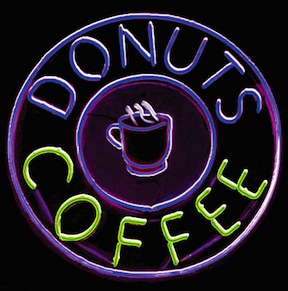The Authentic Rusticity of Wine & Music
 About a year ago, in an interview on the occasion of the release of his third recording, Kermit Lynch mused on the way advances in technology have removed the important act of aesthetic decision making from our lives: “I think CDs have killed the art of the album. Not just the artwork. But with an lp you would hear four or five cuts from an artist, then get to decide whether to turn the record over and continue or to put on something different. Nowadays the CD goes on and on, usually with the same artist, same style, same instrumentation. I lose track, can’t even hear when a song ends and a new one begins.”
About a year ago, in an interview on the occasion of the release of his third recording, Kermit Lynch mused on the way advances in technology have removed the important act of aesthetic decision making from our lives: “I think CDs have killed the art of the album. Not just the artwork. But with an lp you would hear four or five cuts from an artist, then get to decide whether to turn the record over and continue or to put on something different. Nowadays the CD goes on and on, usually with the same artist, same style, same instrumentation. I lose track, can’t even hear when a song ends and a new one begins.”
One wonders what one of America’s most iconic wine importers and musician thinks of the aesthetic impact of the move toward MP3s and digital music and the ability to download single tracks off a recording, leaving behind the rest of what was presumably supposed to be a whole and singular experience. If Kermit’s concern really is the preservation of aesthetic decision making by the observer (and listener), then I suspect he’s all for music lovers being able to take what they want from a digital album and discarding or leave alone the rest. Talk abut aesthetic decision making.
“Coffee and Donuts” is Lynch’s fourth album. Its 1o tracks of bluesy, sometimes country-style song-making and interludes of traditional funk and classic American songbook seems built for picking and choosing, depending on the kind of music one gravitates toward. Not having ever been a real fan of the Blues, Lynches go-to genre, I am still happy to report that the Importer/Singer still provides me with something to like. His covers of Lerner & Lowe’s “On the Street Where You Live” and and Johnny Cash’s “Ring of Fire” have been inserted into various play-lists on my iPod and are likely never to leave.
Kermit Lynch’s greatest contribution to American society will never be his music. It will be his work to introduce French country wines to the American palate, inspiring hordes of other American importers to seek out the not-so-common wines for American palates and for showing members of the wine trade how to write a memoir of their work in the in the trade.
However, as this latest recording demonstrates to those who hadn’t noticed from his life as an importer, Kermit’s concern with individual aesthetic decision making extends well beyond technology’s impact. His collection of wines imported to America has always reflected a keen aesthetic that is decidedly Lynchian in nature: authentic rusticity. Interestingly, his musical voice and choices is not too different and it shows on Coffee and Donuts.

The White Album still sounds pretty good on disc. Likewise The Basement Tapes.